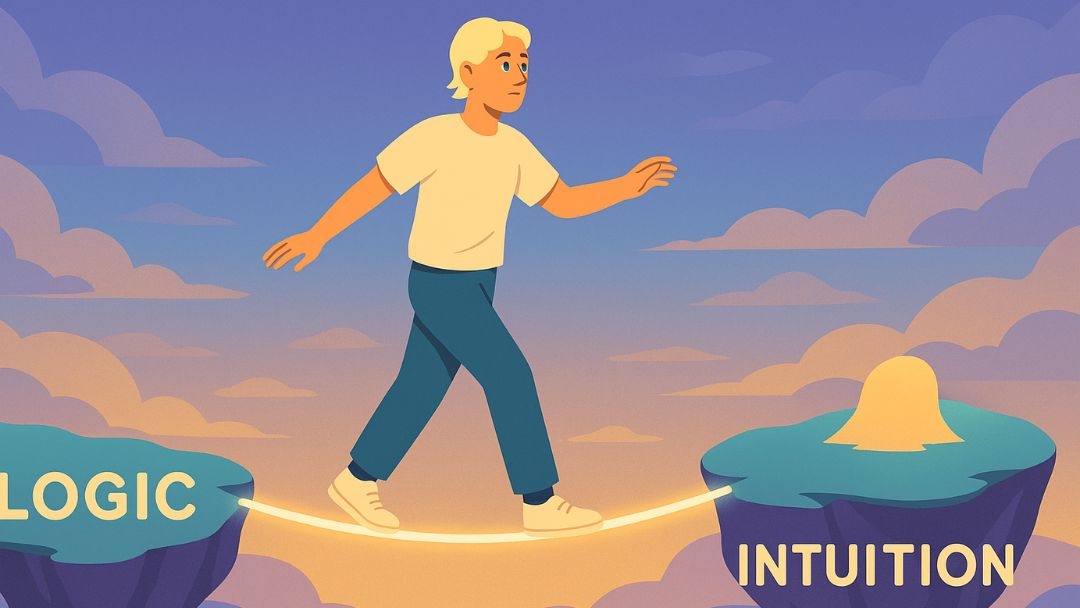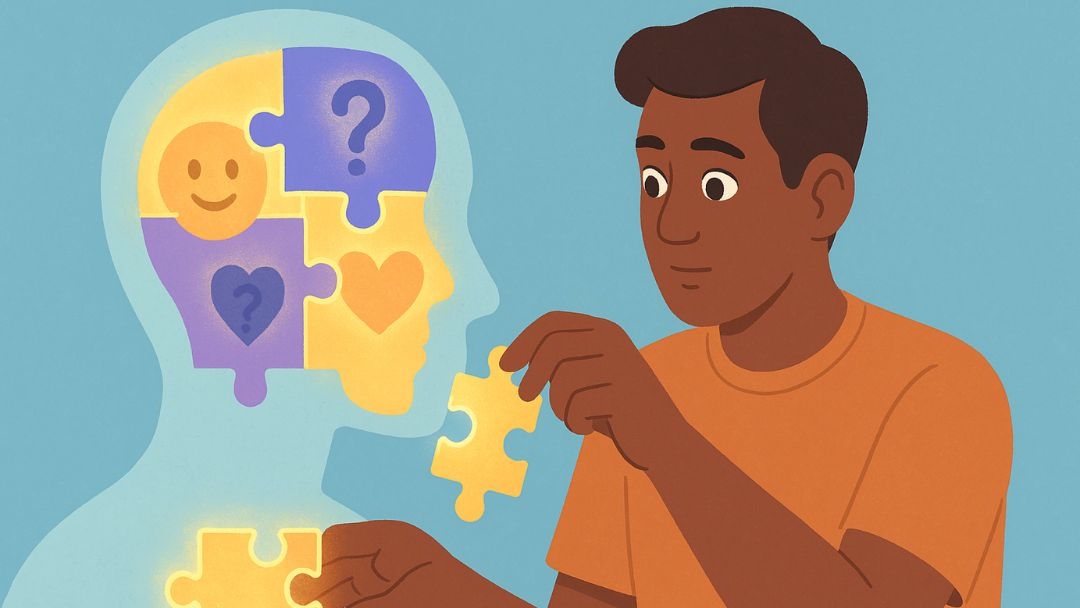7 Traits That Set Super Smart People Apart: Hint, It’s More Than Just Having a High IQ
Discover what truly defines smart people beyond IQ. This guide explores seven science-backed traits of highly intelligent minds, from curiosity and emotional intelligence to embracing contradiction and growth. Learn how to think sharply, adapt faster and develop the mindset that makes truly smart people stand out.


Back
7 mins read
Ever wondered, “Am I smart?” Or maybe you’ve caught yourself thinking, “What makes someone TRULY intelligent?” or "I wish I were smarter."
The truth is, we all wonder about our intelligence at some point in our lives. Especially when we scroll past stories about the smartest people in the world, or meet someone who seems to think faster, speak more clearly, or notice what others miss. In those moments, we start measuring ourselves quietly, as if “being smart” were a scoreboard.
But deep down, we know being “smart” or "intelligent" isn’t just about high IQ or titles. It’s about something more subtle. The way certain people move through life, question things, and turn everyday experiences into patterns of understanding.
For instance, if you look closer at minds like theoretical physicists Stephen Hawking and Albert Einstein (two intelligent people often held up as the “gold standard of Genius”), you notice something different. Their brilliance wasn't just about solving equations or understanding the universe; it came from how they thought and learned to approach complexity itself.
So, what exactly makes people like them and other highly smart individuals think, learn, and see the world the way they do?
Keep reading as we’ll explore seven defining traits that reveal how truly smart people approach life — and how you can start practicing them yourself.
Related: Am I Stupid? 12 Things Dumb People Do That a Smart Person Wouldn't
Top 7 Traits That Set Highly Intelligent People Apart

Most people think being smart is about how much you know. But super smart people don’t just collect facts — they connect them.
Smart people are defined by how they process, adapt, and apply knowledge in complex, changing situations. They link logic with empathy, curiosity with discipline, and emotion with reflection. This blend of depth and flexibility shapes the way they think, learn, and act.
Their secret also lies in how they process contradictions. They connect unrelated ideas, question assumptions, and learn from every experience — including failure.
In short, their intelligence isn’t loud or self-proclaimed; it’s evident in subtle habits that shape how they think, observe, and respond to the world around them.
With that in mind, let’s get to the 7 defining traits that make that mindset possible and how you can start practicing them today.
Trait #1. They Stay Curious, Even When It’s Uncomfortable
Curiosity expands the mind’s capacity for growth by turning uncertainty into fuel for discovery.
Smart people are driven by what psychologists call epistemic curiosity — the hunger to understand why, how, and what if. They treat life like a vast puzzle, seeking not just what happens but why it happens and how the pieces fit together.
This curiosity extends far beyond academics or career goals. They ask questions others avoid, even when the answers challenge what they believe. They might read about quantum physics one week and Tao philosophy the next, not because it’s required but because discovery feels rewarding.
But curiosity isn’t always comfortable. It creates tension between not knowing and wanting to know. Many describe it as both a blessing and a burden, but they wouldn’t trade it for peace of mind, because the unknown is not a threat to them, but a doorway to discovery. It keeps them searching, questioning, connecting, and ultimately growing.
Quick Tip: Try “Curiosity Mapping.” Each week, write one thing you don’t understand and spend 10 minutes exploring it. Over time, your brain will learn to treat uncertainty as opportunity, not fear.
Trait #2. They Balance Logic with Emotional Intelligence
Balancing emotion with reason creates a steadier mind and wiser responses even when circumstances feel uncertain.
A high IQ can solve problems, but emotional intelligence keeps people connected. Smart individuals know logic means little if it lacks empathy.
Take the film Smart People, where Dennis Quaid’s character — a brilliant but emotionally closed-off professor — learns that intellect alone can’t sustain relationships or purpose. Still, his transformation throughout the film also highlights that lack of emotional reasoning can distort perception.
But smart people avoid that trap. They pause before reacting. They blend emotional awareness with rational thought, which allows them to navigate both ideas and people with balance. In fact, research shows that individuals who pair empathy with emotional regulation perform better in creative problem-solving and leadership roles.
Quick Tip: Use the “Pause–Name–Reframe” method. When you feel triggered, pause, name your feeling (“I feel frustrated”), then reframe it (“This emotion is data”). This builds emotional reasoning, which shifts reaction into reflection.
Trait #3. They Think in Paradoxes and Embrace Contradiction
Accepting contradictions invites more flexible, sophisticated thinking and strengthens your ability to see complexities from multiple angles.
Highly smart people are comfortable holding two opposing truths. They can believe in science and still appreciate mystery, trust logic yet understand intuition. Psychologists call this cognitive dissonance tolerance — the ability to sit with conflicting ideas without losing clarity. This trait helps them think in layers, not binaries.
Research confirms that individuals with high cognitive ability are more open to ambiguity and more likely to rethink their opinions when faced with new evidence. In other words, they care less about “being right” and more about “learning better.”
Quick Tip: Debate yourself once a week. Take one opinion you hold firmly and argue against it. Doing this builds your tolerance for ambiguity and keeps your mind flexible enough to handle complexity.
Trait #4. They Turn Struggles into Growth
Neuroscience shows that reframing setbacks as learning opportunities activates the brain's reward circuits faster, sustaining motivation.
Truly smart people struggle, too, like everyone else. They overthink, doubt themselves, and sometimes feel misunderstood. But they translate those struggles into understanding rather than letting it feed their fear of failure.
Albert Einstein captured it best: “It’s not that I’m so smart; it’s just that I stay with problems longer.” Einstein's success wasn’t just about raw intellect. It was about patience, resilience, and the willingness to wrestle with ideas for years, turning what seemed impossible into discovery.
Even so, this depth can make them seem distant or misunderstood to be struggling with mental illness. In truth, they’re simply processing their world on a different frequency.
Quick Tip: Start by shifting how you define struggle. When something feels impossible, ask, “What is this trying to teach me?”That small shift turns frustration into focus. It helps you stay patient long enough for understanding to take shape.
Trait #5. They’re Comfortable Being the Beginner (Over and Over Again)
A beginner’s mindset keeps learning alive and protects against intellectual complacency.
While most people fear looking inexperienced, intelligent people lean into it. They see each new challenge as a reset button and a way to stretch their mental limits.
Unlike those who cling to comfort zones, they understand that mastery isn’t a one-time achievement; it’s a cycle of learning, unlearning, and starting again. So, when they stumble or make mistakes, they ask questions and do it repeatedly without hesitation. Over time, what feels awkward at first eventually becomes a quiet strength, turning growth into second nature.
They also don’t need to sound smart to feel smart. They know that progress demands the willingness to admit, “I don’t know this yet.” And that mindset to begin again connects to knowing where to invest their mental energy and when to let go simply.
Quick Tip: Try a 30-day beginner challenge. Pick one new skill (e.g., coding, drawing, public speaking) and spend 10 minutes a day on it. The goal is to normalize discomfort and rewire your brain’s “fear of being a beginner” loop.
Trait #6. They Learn Through Imitation, But Don’t Stay There
Learning starts with imitation but becomes intelligence through originality.
Smart people are also defined by their understanding that imitation is a natural starting point for learning. From early childhood, humans learn by watching and imitating others, a process called social learning.
Smart people use it consciously. They study how experts approach problems, mirror their methods, and internalize patterns of thinking. This iterative process turns borrowed techniques into original thinking, allowing them to innovate rather than merely replicate.
Intelligent people understand that the key difference between imitation and mastery is adaptation. They take what works and make it their own, but they also know the power of collaboration.
Quick Tip: Try the 3-I Rule. Imitate → Integrate → Innovate. Learn the model, apply it once, then tweak it for your own context.
Trait #7. They Reflect Deeply, Then Act Decisively
Reflection without action is hesitation; action without reflection is risk. Smart people balance both.
Smart minds operate like scientists in everyday life. They form hypotheses (“If I take this approach, here’s what might happen”), analyze, and then act based on evidence.
Once a decision is made, they rarely second-guess because they’ve already simulated multiple outcomes in their minds, tested their reasoning against past experiences, and identified what truly matters. You’ll see this trait in entrepreneurs who pivot with precision, or strategists who can reverse-engineer outcomes without needing constant reassurance.
Smart people also know timing matters. They know when to think longer and when to move forward. In other words, the groundwork of reflection gives them intellectual clarity and steadiness to follow through.
Quick Tip: Try the “Two-Step Reflection:” Step 1: Before acting, write a one-line summary of your reasoning. Step 2: Afterward, note what worked and what didn’t. This reflection builds a feedback loop that sharpens judgment and closes the gap between thinking and doing.
The Takeaway: Becoming Smart Is a Practice, Not a Score

It’s tempting to think intelligence is purely innate — a rare gift of genetics or luck. But while genes play a role, habits, mindset, and lifelong learning shape it just as powerfully. To say the least, smart people are made through the choices that sharpen how they see, think, and act.
They stay curious when others are comfortable. They trade certainty for growth, ego for understanding, and perfection for progress. They don’t wait to feel ready before they learn. They learn their way into readiness.
So if you want to think and act like the smartest minds, start with their traits, not the title. Pick one trait that stood out to you, maybe it’s being more patient with struggle, or courage to start again. Then practice it intentionally this week. Not to prove your intelligence, but to expand it.
And if reading this made you wonder how many of these traits you already show, that curiosity is a good sign. Try taking an IQ test to see how your thinking patterns reflect the qualities that define truly smart people. It’s not about comparison, but about understanding the way your mind works and how far it can grow.
Related: Can I Have a High IQ and Make Dumb Decisions?


Return to Blog






